Do you know what parts to look into if your car shakes when accelerating? Most people will suspect tires and wheels but several other components could be the possible culprit.
With age and less periodic maintenance, any car will shake and vibrate at the time of riding as time goes by. However, some internal problems can also cause these problems and you should take them seriously.
Contents
- Car Shakes When Accelerating: Top 9 Reasons & Possible Solutions
- FAQs on Car Shakes When Accelerating
- Why does my car only shake during light acceleration but not during hard acceleration?
- Why does my car only vibrate when accelerating uphill?
- Why does my steering wheel shake only when accelerating from a stop?
- Could mismatched tire sizes cause shaking during acceleration?
- Why does the vibration stop once I hit cruising speed?
- What happen when car shakes when accelerating but not when coasting?
- Conclusion
Car Shakes When Accelerating: Top 9 Reasons & Possible Solutions
If you are wondering why your car vibrates when accelerating, you are in the right place. Tire problems could be a reason for the shaking issue.
However, the following are also strong reasons for the shaking of a vehicle at the time of speeding up.
The Rear Driveshaft and U-Joints
One or both could be the source of the problem. You have to remove the driveshaft and feel the joint’s movement. Any rough patches there will be magnified when the engine runs with power.
A visual diagnosis will be enough for the U-joints. Look out if there is any rust gathering around the grease seal. Anything that causes the grease to disappear will create a shaking problem.
A Bent Axle
Even the slightest bend can be the reason for serious shaking, especially when the car speeds up. The surprising fact is even a minor fender-bender or a small bump in the road can lead to the twisting of the car axle.
A bent axle, in most situations, cannot be fixed and must be replaced. A faulty axle if left unnoticed will cause more harm to your car. To avoid more costly repairs, you should check the axle more occasionally.
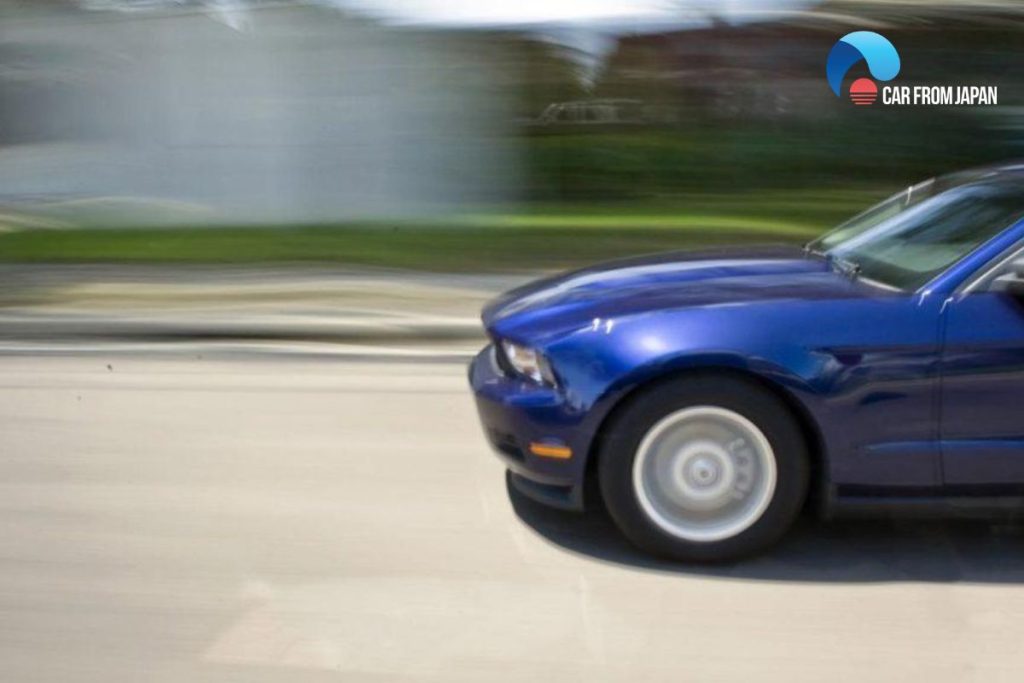
Fail CV Joint
Sometimes, the problem could be the result of a worn-out CV joint that you will find at the end of the axle.
The CV joints of a vehicle are critical in delivering power to the driving wheels of a front-wheel drive vehicle. If dirt or debris enters the vehicle’s CV joints, their service life will be drastically shortened.
Free play will become evident, and shaking may occur, perhaps worsening over time.
Replacement of a vehicle’s CV joints can be costly due to the high cost of separate parts. Once up-to-date labor expenses include, your repair fees quickly add up. Your car’s CV joints will cost between $250 and $800 to replace.
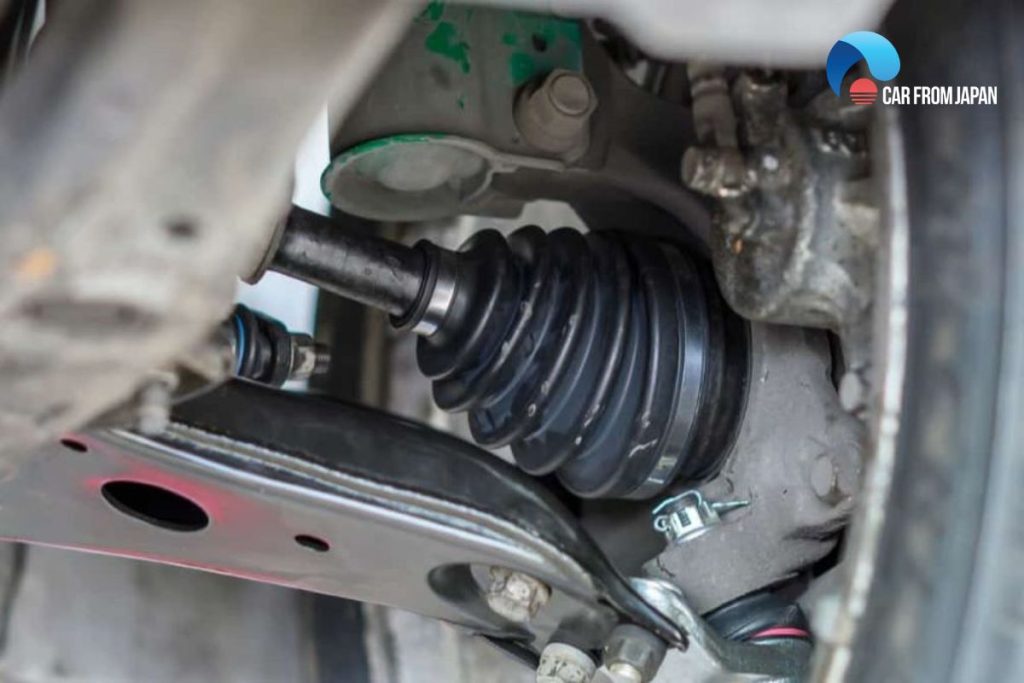
The Tires
Car tire issues are one of the main reasons why a car shakes when accelerating. The first thing you should check is if they are firmly attached to the wheels. A loose tire not only causes vibration but can also lead to major accidents.
Unbalanced tires could be another source of shaking. Tires that are out of balance or misaligned due to worn-out tread or bad installation won’t let the vehicle run straight on the road.
If one tire is unstable, it can affect the others with time. So, you should change or balance your tire immediately before it gets worse.
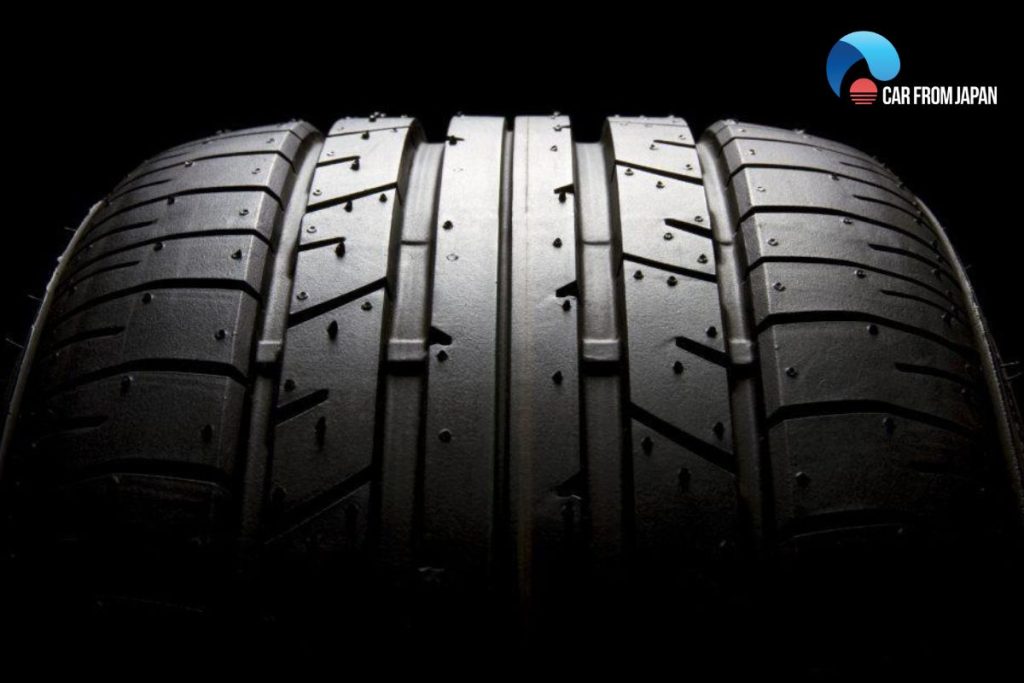
SEE MORE: The Easy Solutions to Fix Car Vibrations
Look Into The Wheel
If the tires are fine, the wheel is the next item that should come on your diagnosis list when your car shakes when accelerating. Loose or damaged wheel bearings could give your vehicle a good shake at higher speeds.
Although these parts are unlikely to wear out with time, it’s not impossible. So remember that when the car’s front end shakes when accelerating, find damaged bearings in cars that have been driven extensively for many years.
If you feel the rumbling through the steering wheel, the problem could arise from plenty of components – struts, bearings, shock absorbers, tie rods, and ball joints.
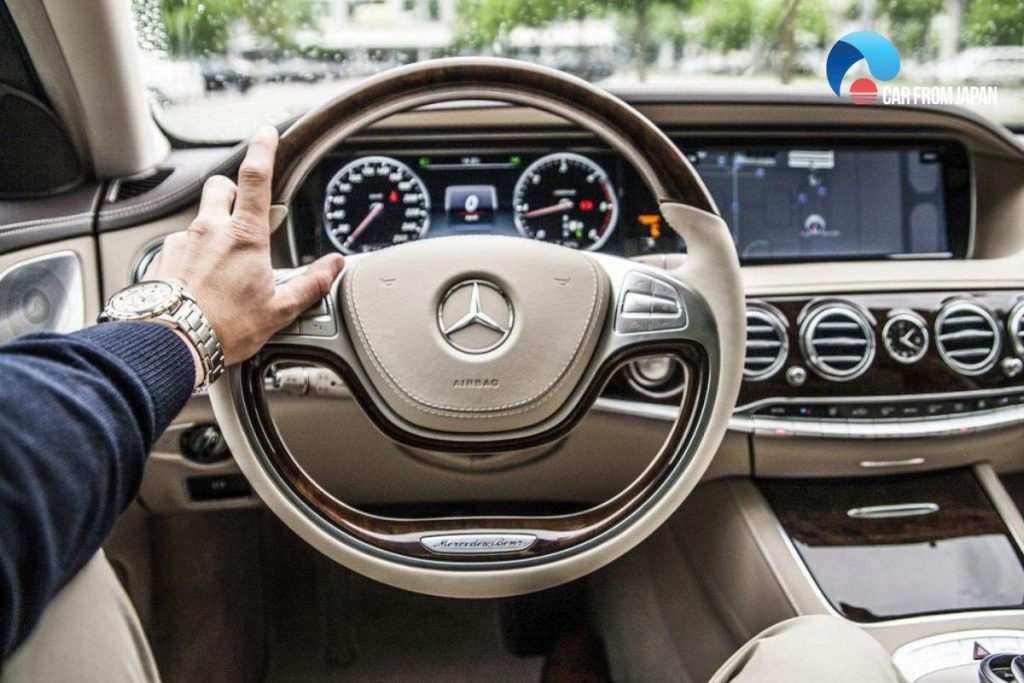
Stuck Brake Caliper
It’s not something that happens frequently but can happen nonetheless. A stuck caliper starts to shake at 40 to 50 mph, and the vibration on car when accelerating becomes worse.
When a car shakes when accelerating at 40 mph, it’s not unusual to get a whiff of a burning odor when the car stops.
You can approach the stuck brake by these recommendations for a more time-saving process.
- Clean and lubricate the moving parts. You can repair sticky brake calipers by removing them, then cleaning and lubricating.
- Bleed the braking system. Bleeding your braking system may also aid in the repair of a jammed brake caliper.
- Replace the failed caliper
- Bring it to a trusted car center
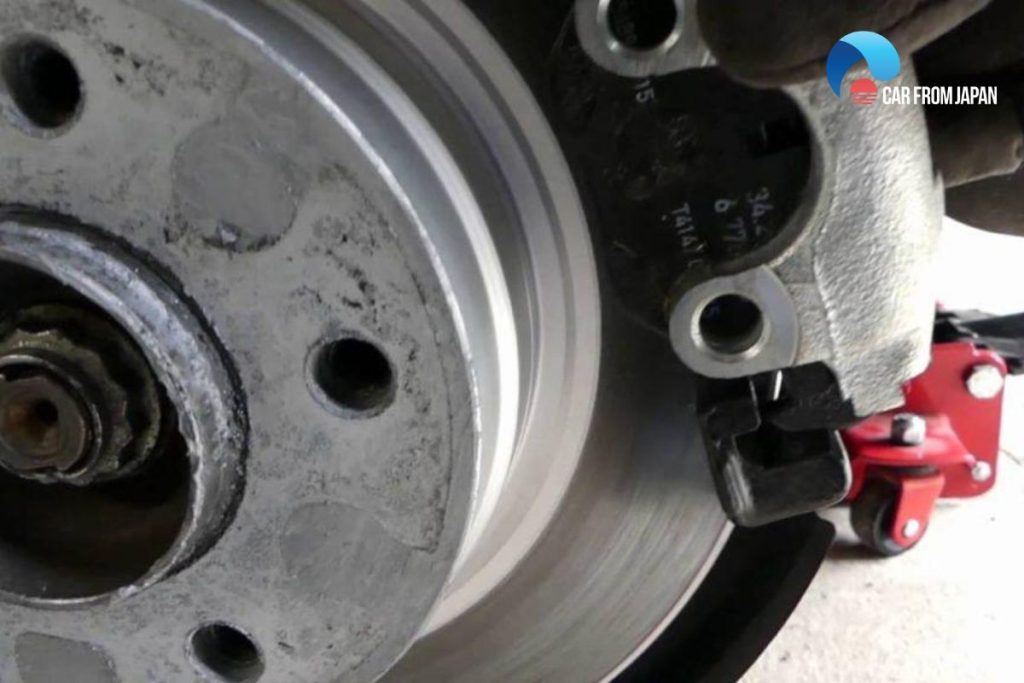
Broken Radiator Fan
A cracked or damaged fan won’t hamper the engine operation in any way but it may lead to vibration when accelerating.
When you start the vehicle, the fan tries to turn but just teeters instead because of the broken condition. The wobbling will shake the car side-wise, especially when you speed up.
A blown fuse, a defective relay, or a damaged wire are the most typical causes of a radiator fan not working.
A defective coolant temp sensor may also possibly be to blame. A faulty radiator fan, in any scenario, can be fatal to your engine and car performance in general.
If you like to fix things yourself, learning how to fix a radiator fan from online sources and videos can help you save your car’s engine from damage and even save a significant repair cost.
On the other hand, if you want to contact an expert to do the job, a radiator fan may normally be repaired for $100 to $400 . This sort of replacement will normally cost between $100 and $400 in labor.
Check out this video below from EasyAutoFix to learn more about a cracked or damaged radiator fan causing your car’s vibration on acceleration.
Inadequate Engine Combustion
Any engine that does not ignite at all cylinders can produce vibrations, which are frequently felt under severe load.
Wearing spark plugs, defective fuel injectors, or even a loss of compression can all contribute to a lack of combustion. The existence of a check engine light may or may not accompany these issues.
The expenses of repairing combustion-related problems might vary greatly depending on the underlying issue.
While most spark-related issues can be fixed for less than $200, loss of compression can need a full engine overhaul, which can cost between $1,100 and $2,500.
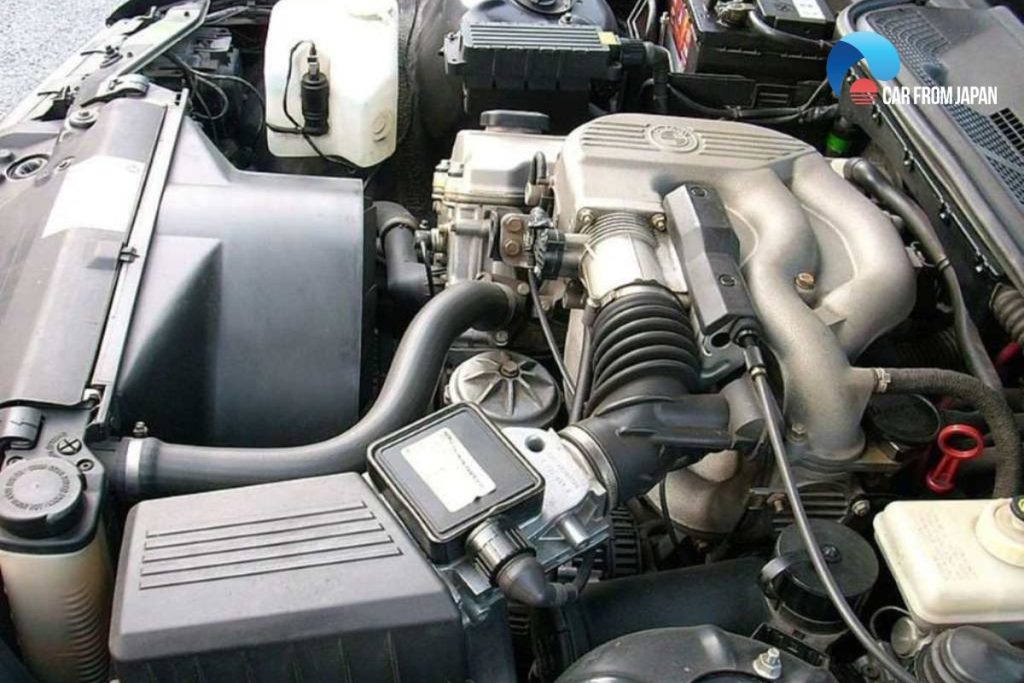
Transmission Problems
Although internal transmission problems are kinda rare, they can cause car shaking when accelerating.
Unfortunately, problems of this transmission nature are quite complicated to diagnose and repair. Disassembly of the gearbox in issue is often needed.
Such issues are rarely inexpensive to resolve. When a transmission must be torn down and reassembled, the costs add up quickly.
Under these conditions, one should expect to pay between $1,000 and $2,000 to have their transmission thoroughly inspected and rebuilt.
FAQs on Car Shakes When Accelerating
Why does my car only shake during light acceleration but not during hard acceleration?
This could point to a slightly bent axle or an early-stage CV joint issue, at low torque, the vibration is more noticeable due to less drivetrain tension.
Why does my car only vibrate when accelerating uphill?
Uphill driving loads the drivetrain more heavily. A bad engine mount, worn driveshaft, or weak ignition system may only act up under this extra strain.
Why does my steering wheel shake only when accelerating from a stop?
It could be a sign of a warped brake rotor dragging or a damaged axle shaft, not always related to wheels or tires.
Could mismatched tire sizes cause shaking during acceleration?
Yes. Mismatched rolling diameters confuse traction control and create rotational imbalances, especially noticeable when torque is applied.
Why does the vibration stop once I hit cruising speed?
This suggests a drivetrain-related issue like worn CV joints, motor mounts, or driveshafts, all of which smooth out when torque levels stabilize.
What happen when car shakes when accelerating but not when coasting?
A car that shakes when accelerating but not when coasting often has a worn-out drivetrain part, such as an inner CV axle or a driveshaft U-joint.
The vibration happens under the stress of acceleration, so have a mechanic inspect the vehicle to prevent further damage.
Conclusion
We have scrolled through the top 9 reasons why car shakes when accelerating and the possible solutions of each.
Hope you will find this article helpful and see you again with more car maintenance tips from Car From Japan.




I have a 02 chevy venture. I replaced wheel bearins but it still is shaking bad upon acceleration. I can sometimes hear a little pop under front end when i take off. I mean a bad shake happens when accelerating like vibrates the wheel and dash board and whole van just bout it. Any ideas.
Did you ever find the problem???
I have a Toyota Chaser GX 100 which is currently making a crank sound on the front right tire. It was taken to some mechanic of which some said it is the suspension. They changed all the suspension parts but the crank sound is still been heard. The crank sound is heard wen the car passes on a rough road.
What really could cause this? Kindly help
I have an old 1989 BMW e30 car which has been OK for a while until recently when it started vibrating when I accelerate especially uphill when am climbing a steep hill plus it doesn’t have power, my local mechanic suggests I should replace spark plugs yet they’re less than 6months old. What’s your advise?
Mine a Honda Stream used to vibrate between 40 and 80km/h I discovered it was the drive shafts bearing that had been damaged due to the mechanic having returned it badly while changing the shocks.
I have a 2006 Toyota Scion Xa and my car starts to like halt when I’m accelerating or even when the car is parked it’s never happened before.
I have the same problem did you find out what is was
I have nissan xtrail t31. I feel vibrating when the beginning of accelarating and after that it will go off.anyone was having this issue?
Noticed a shaking when I accelerate. It’s a 2002 quattro audi all wheel drive I changed the ball joints and the whole arm i.t had made a big difference when acceleration it’s applied but still still shake a little.. was wondering if a bad alignment could mark make this happen, there shaking was both sides but after replacing control arms it’s way better bit right side still shakes. Any help would be greatly appreciated.
Same issue with mk4 R32 I wonder if any one can advice
I have a 2010 Subaru forester. When I step on the gas it take some time. Find the gear why?
I have a 2011 Toyota Camry, car vibrates or shakes through steering wheel from 40-50 mph and runs smoothly after 50. Shaking usually takes place when accelerating with foot on gas; stops when taking foot off gas.
Paul.My Toyota Sienna does exactly the same thing. Did you ever get it fixed?
Did you ever find out the issue. My 2014 Camry does something very similar from 30-50 when I’m slowly accelerating. If I get on it a bit harder the vibration goes away.
I have a 2011 Toyota Camry, car vibrates or shakes through steering wheel from 40-50 mph and runs smoothly after 50.
Shaking usually takes place when accelerating with foot on gas; stops when taking foot off gas.
Did you ever find the issue Paul? I have the same problem with my 07′ Toyota Avalon.
Paul did you ever find out your issue? My Camry is doing the same thing and it’s driving me crazy!
I also have the same problem with my 1999 subaru legacy outback awd!
I have a Honda CR-V 2010 and it started to shake a few weeks ago we did the tire balance
But still shakes from time to time when driving
Anyone knows what could that be
My 2014.Toyota Camry shakes intermittently when I accelerate and stops when I take foot off gas or if I speed up. I had my tires balanced twice and a alignment. My tires are Michelin and are a little over a year old. Balance nor alignment fixed the problem.
I have a 2003 buick century that is doing the same thing. My dad is a mechanic and after speaking with him it could be the motor mounts, CV shaft, or the transmission. I’m hoping its the motor mounts since that is the cheapest solution. I put new tires and had the car aligned 3 days ago and no change.
I have a nissan altima 2015, the steering wheel vibrates a little when I have the car in park. And when I put the car on D start driving afte 5mph when I hit the gas pedal it starts to vibrate everytime i accelerate what could that be?
Same problem with my 2010 Camry!! Anyone find an answer? I don’t see replies to anymore the issues in the comment section.. am I missing something? My car shakes/wobbles when I reach about 40mph and stops around 60mph unless I give it a lot of gas then it does the same shake/wobble. Now the strange part is when it’s shaking/wobbling as soon as I let my foot off the gas pedal it’s perfectly smooth. Idle is smooth 0-30mph is perfectly smooth I have asked so many people and have gotten so many different diagnoses I can’t afford to go to a local shop. Would y’all have any clue? It’s a 2010 Toyota Camry V6 Automatic FWD. Thank you in andvance!
It’s a transmission problem, its too old.
My car is Cross Polo VW 1,6 litre ,when accelerating is shaking on the steering around the speed of 40km to 100km per hour very bardly with a bit of sound ,